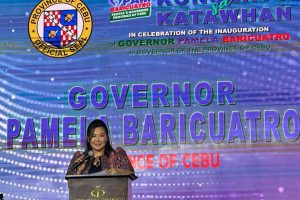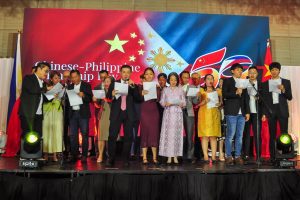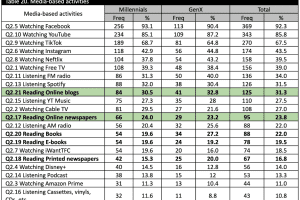In line with the new thrusts and priorities of the Department of Agriculture (DA) towards a food secure and resilient Philippines with prosperous farmers and fishers, the Philippine Council for Agriculture and Fisheries (PCAF) introduced and ramped up its engagement with its private sector-partners, through the implementation of a value creating strategic shift called Innovative Consultation on Agriculture and Fisheries Reforms and Engagement, also known as iCARE Program.
In a report published by the United Nations’ (UN) Food and Agriculture Organization (FAO) in 2020, about 59 million Filipinos are considered to be food-insecure people in Southeast Asia from 2017 to 2019. This is a stark 32-percent increase from the 44.9 million recorded from 2014 to 2016. The report says these food-insecure Filipinos are suffering from a moderate to severe lack of consistent access to food, which roughly translates to about 50 percent of our country’s population.
Through the iCARE Program, PCAF facilitates broad-based participatory processes in the agriculture and fisheries sector that provides sound policy recommendations, project proposals, and adapt strategic measures to cope with the pandemic and usher innovation to address food security challenges in the Philippines
Strong foundations, solid track record
PCAF is the result of the consolidation of two agencies – the National Agricultural and Fishery Council (NAFC) and Livestock Development Council (LDC) as per Executive Order 366, Series of 2004.
As an attached agency of DA, PCAF facilitates equal and broad-based participatory processes in the agriculture and fisheries sector. The mechanisms and processes include the representation of stakeholders across the commodity value chain, participatory policy making, planning and budgeting, project development, monitoring and tracking of programs and projects.
PCAF seeks to revitalize the recruitment and engagement of new value chain business-oriented and youth organizations as part of the consultative and policy advisory bodies of DA, through accreditation and evaluation and partnership agreement process to ensure wide reach of industry stakeholders.
It was instrumental in the crafting and lobbying of landmark laws and its implementing rules and regulations, such as the Agricultural and Fisheries Mechanization Law, Coconut Levy, and Rice Tariffication Law.
For eight years, since it became PCAF, it has commissioned institutions to conduct evaluative and policy studies which subsequently became the basis for sound policy recommendations (bit.ly/PCAFEvalStudies). A recent study conducted by the Philippine Council for Agriculture, Aquatic and Natural Resources Research and Development (PCAARRD) recommended the institutionalization of the Biotechnology Agency of the Philippines (BioAP), which will assume both the responsibility of promoting and regulating biotechnology, an important innovation in advancing food security.
Agricultural issues in time of the pandemic
PCAF provides a platform for dialogues among its stakeholders. But the pandemic prevented face-to-face meetings and interactions. Private sector-partners or national and local AFCs, who are mostly over 60 years old, were compelled to find new ways to voice out issues and concerns and create sound policy recommendations to aid the pandemic-stricken industry.
“We have been in continuous discussions with DA, and through PCAF, we have identified major recommendations to help the country rise amidst the various challenges in the Poultry, Livestock, and Corn sector, to contain African Swine Fever, to give away to swine repopulation and improve genetics thru genomics, increase milk production to provide nutrition to school children, increase corn yield per hectare, and good quality grains,” noted Dr. Arnulfo Frontuna, Chairperson of National Banner Program Committee (NBPC) on Poultry, Livestock and Corn.
PCAF, as an agency, embraced its new “service brands” to recalibrate its strategies focused on COVID 19 efforts, but still aligned to its mandate, that is to act as the advisory body of DA to ensure the success of its programs and activities” and “to establish a nationwide network of Agricultural and Fishery Councils to serve as the forum for consultative and continuing discussions within agriculture and fisheries sectors”.
“Now more than ever, Tambuyog understands and values the role of multi-stakeholder platforms like PCAF in facilitating stakeholder dialogues and linkages between different governance levels, and most significantly, provides venue for participation of stakeholders like Tambuyog and PaNAGat in policy formulation related to fisheries and aquaculture,” shared Dinna Umengan, Executive Director of the Tambuyog Development Center and Chairperson of NBPC on Fisheries and Aquaculture.
PCAF in the new normal
The pandemic strengthened the existing ties and built new connections amongst PCAF and its stakeholders to create meaningful connections.
“Everything was possible because of the cooperation, volunteerism, and active participation of everyone in the agency and its private sector-partners,” expressed Dr. Liza Battad, PCAF OIC Executive Director. “This formula can achieve the common goal in addressing the issues and concerns of the agriculture and fisheries sector.”
Director Battad is confident that the lessons learned will move the agency closer to a stronger collaboration towards agriculture and fishery development, and a food-secure nation through sound policy recommendations.
For almost a decade, PCAF has been in the frontline, confronting various issues and concerns in the industry, showing that even the pandemic cannot slow it down from serving its stakeholders.












